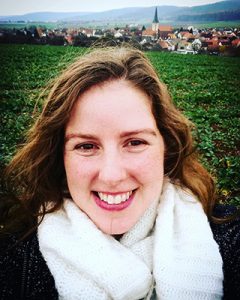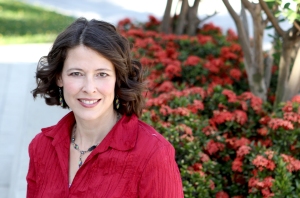 Natascha is a new agent at Bookends Literary (she’s now at The Tobias Literary Agency) and a former editorial assistant for Simon & Schuster. She is open to submissions for picture books, middle grade, and young adult across multiple genres: contemporary, mysteries, thrillers, fantasy, historical fiction, and narrative non-fiction. She is looking for authors, illustrators, and author-illustrators.
Natascha is a new agent at Bookends Literary (she’s now at The Tobias Literary Agency) and a former editorial assistant for Simon & Schuster. She is open to submissions for picture books, middle grade, and young adult across multiple genres: contemporary, mysteries, thrillers, fantasy, historical fiction, and narrative non-fiction. She is looking for authors, illustrators, and author-illustrators.
Thank you, Natascha, for your insightful answers.
What was your favorite role during your days as an editorial assistant at Simon & Schuster?
There were two things I loved about working at Simon & Schuster: reading the submissions to find that standout project, and working with the design team to come up with great covers. As an agent, I can still find that diamond in the rough, but I will miss coming up with cover concepts.
Were there any manuscripts you helped acquire that you’re particularly proud of?
Kit Frick’s See All the Stars (Summer 2018) is one I’m particularly proud of. Read it on submission and fell in love with it. I also had the opportunity to offer editorial notes. Kit is an amazingly talented writer who changed the whole manuscript with a few smart line changes. I’d love to find an author like her.
Could you walk us through the acquisitions process—what stars had to align in order for S&S to select a manuscript for publication?
Every book is different and sometimes, editors don’t follow the process. But in general, once an editor has a project they want to pursue, they take it to the editorial meeting. If the other editors agree (and sometimes they don’t), the editor takes it to acquisitions. I worked at two literary imprints, so quality of writing was a big factor. After that it came down to a host of factors: editorial taste, vision for the project, and market saturation. Publishing is subjective, and sometimes timing plays a part of that.
If you could name one skill you honed as an editorial assistant that has helped you transition to agenting, what would it be?
Mmmm, tough question to answer. Different aspects of being an editorial assistant helped. The number one factor that helped is probably my ability to read a manuscript and see its potential. As an editor, you have to have a vision for a project to edit it, and it’s my firm belief that an agent should also have a vision. If I don’t have a vision for your manuscript, I can’t be the best agent for you. And you deserve the best agent and the agent who gets it.
What’s the biggest challenge you’ve had as an agent that you didn’t have as an editor?
The volume of reading is a bit different. In editorial, you still have a lot of reading to do, but in 24 hours after announcing I was an agent, I had 100 queries lined up. I’m not a patient person, so I feel a need to get through that quickly so others are not waiting on me. Another thing is the different ways editors and agents read. As an editor, if I was on the fence about something, it was probably a no. As an agent, it means seeing if the author is willing to revise. Being an agent means putting on a different hat and evaluating projects differently.
You’ve kindly listed your favorite books on Pinterest. Let’s focus on picture books, if we may. What’s your sweet spot in picture books? Lyrical, humorous, yes/no/maybe to potty humor?
For picture books, I love subtlety that adults will pick up on, but kids may not. A parent is going to be reading these books too, and while the target audience is for a child, why can’t a parent have fun too? That’s why Tea Rex and Not Quite Narwhal are my favorites. There’s something for the kids, and something for the adult. I also love humorous and lyrical books. It is really what strikes my fancy. And potty humor can be tricky so my answer is maybe.
In your interview on Bookends’ site, you talk about your editorial brand. How would you define your brand? I mean, if your books were on Project Runway, what would be the common theme?
My editorial philosophy will define my brand and, by extension, the clients I take on. My editorial philosophy is one guiding thought: that everyone deserves high quality writing that is entertaining. The clients I want to sign are solid writers who have books that readers want to read, repeatedly. And ideally, these projects should have an easy elevator pitch, i.e. The Village meets The Little Mermaid (and FYI, I would love to read that book). The theme you’ll see in my Pinterest is that all those books are well-written and have great commercial hooks.
You mention Molly Idle as a picture book creator you admire. Is it her art style you gravitate most to, her stories, or the combination of them both?
Both actually. Tea Rex was my first introduction to her work, and I loved her art style, and the humor of that book. She is someone I was always pitching for picture books at Simon & Schuster because I’ve always wanted to work with her.
What illustration styles do you prefer?
I find talking about art so hard! For me, I love bright colors and a textured look. It can be digital, but it needs to look like you painted it or drew it with map pencils. I think of picture books as art pieces, so the books I love and the art I gravitate to has that rendered look.
You accept authors, illustrators, and author-illustrators?
Yes. For author-illustrators, I have to fall in love with your art AND your writing. And that is the same thing that a future editor will also have to do. So for me to take on an author-illustrator, it has to be a total package deal. Other agents may feel differently.
Are you looking for non-fiction picture books? If so, what topics would be of most interest to you?
I will be pickier about taking on non-fiction picture books. It all comes back to the writing and audience. These are for children so the writing can’t be too dry. I love ballerinas and female pioneers.
What traits are most important to you in a potential client?
Fit is a number one trait. Publishing is a marathon, not a sprint, and I want clients who will understand that it’s not going to happen overnight. I like to tell potential clients that I’m here to be your “publishing best friend.” My job is to guide your career, but it does mean that sometimes we will have difficult conversations. I always do a phone call before I offer representation, just to be sure our work styles will match.
What conferences will you be attending in the near future?
The only one I have planned is the DFW Writers Conference, May 5-7. More might be coming, but for now that is the only one confirmed.
What constitutes the ideal query for you?
The ideal query for me is something that shows personality, but professionalism. I want to see a bit about your book, and about who you are. But for me: I’m all about that book. Queries are an art, but your book is what tells me the most.
Thank you, Natascha!
You can find more information about Natascha at: https://www.thetobiasagency.com/natascha-morris

Revisiting your interview today, Johnell. Wonderful information–thanks so much for sharing!
LikeLiked by 1 person
Thank you, Becky.
LikeLike
Thank you so much, Johnell. It’s very hard to find new literary agents who fit the type of picture books I want to create. Natascha’s thought that adults should also enjoy the story and her love for humorous and lyrical books is exactly the kind of agent I hope to find. So glad you linked this post in the 12X12 Facebook group.
LikeLiked by 1 person
Thank you, Jim. I’m glad it was helpful!
LikeLike
This interview was very informative for me right now. I have always wanted to write stories for children, but now I do art as well, so I would love to be an author/illustrator. Thanks for the reminder that it is a marathon not a sprint!
LikeLiked by 1 person
Good luck with it! And thanks for the comment.
LikeLike
Thank you. And you’re welcome! 🙂
LikeLiked by 1 person
Thank you Johnell and Natascha. It is so helpful to us aspiring authors to understand the process. (Perhaps will help me to not be so impatient. 😐). Thank you!
LikeLiked by 1 person
Thanks for taking the time to comment, Emmie.
LikeLike
Very interesting and informative interview. Thank you both. 🙂
LikeLiked by 1 person
Thank you for your comment.
LikeLiked by 1 person
I Really like Natascha Morris’ keen eye for the aspects of PBs just for the parent readers. I always think about this when I write, because as a parent, (who never knew one story can be read a hundred times) resonance for the adult reader made all the the difference. Certain authors were always welcome on our bookshelf, because they thought of mama-me as well.
LikeLiked by 1 person
Oh me too. There are some books I ended up hiding because I couldn’t stand to read them for the fortieth time.
LikeLike
Lol! Me too. Great interview. Thanks for sharing!
LikeLiked by 1 person
Thanks for stopping by!
LikeLiked by 1 person